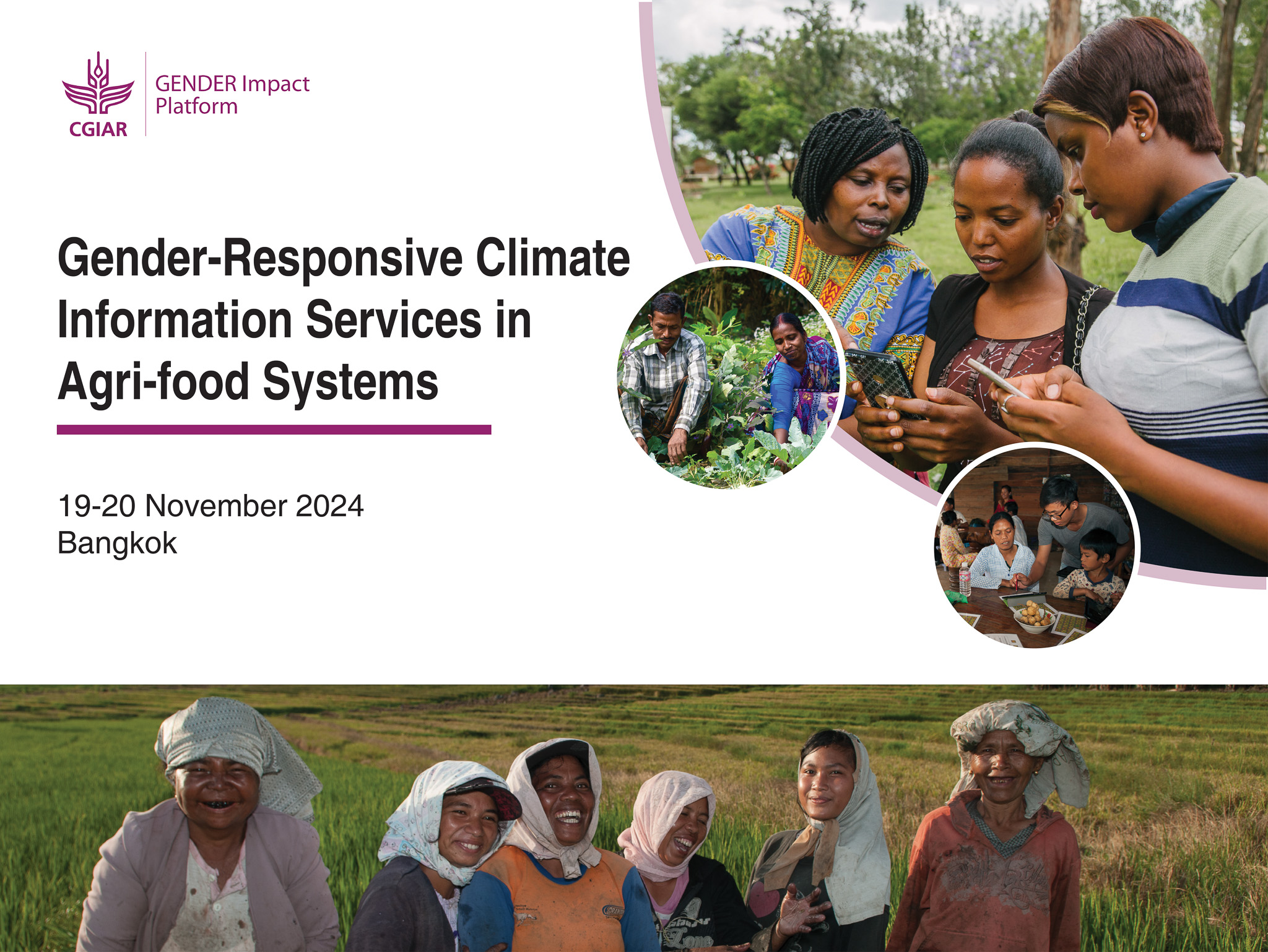Workshop: Gender-Responsive Climate Information Services in Agrifood Systems
The CGIAR GENDER Impact Platform is organizing a stakeholder consultation workshop on Gender-responsive climate information services (CIS) in agrifood systems. The workshop led by Evidence Module of the Platform will take place from 19-20 November in Bangkok, Thailand.
Climate variability and extreme weather events pose significant threats to agrifood systems worldwide. Thus, reliable and timely climate information services (CIS) are critical for farmers to make informed decisions, mitigate risks and adapt to climate change. Effective CIS can enhance resilience, support climate change mitigation and adaptation efforts and improve livelihoods. While women are known to be disproportionately vulnerable to climate change, they are often excluded or lack access to these essential services due to persistent structural inequalities and social barriers.
The CGIAR GENDER Impact Platform is just completing a mapping of CIS provision in Low- and Middle-Income Countries (LMICs) and a scoping review to investigate gendered access to and usability of climate information in agrifood systems. The review reveals significant gaps in CIS provision, highlighting the need for gender-responsive approaches. The emerging findings highlight the importance of addressing the unique needs and challenges of women farmers to enhance their resilience and agricultural productivity.

Objectives of the workshop
This stakeholder consultation workshop aims to surface and devise effective strategies to deliver gender-responsive CIS in agrifood systems, based on evidence and experience. By bringing together a diverse group of stakeholders the goal is to:
- Understand whether and how gender and social equity considerations are integrated in the design and delivery of climate information - content, language, mechanism or channels for delivery, useability, provision of complementary information or services for decision-support assessment etc.
- Identify the constraints and enablers for the service/information providers in developing gender-responsive and socially inclusive climate information services in agrifood systems.
- Identify effective strategies and scalable solutions for reaching and benefiting women farmers across different socioeconomic groups with climate information services, including opportunities for better coordination and collaboration among information providers